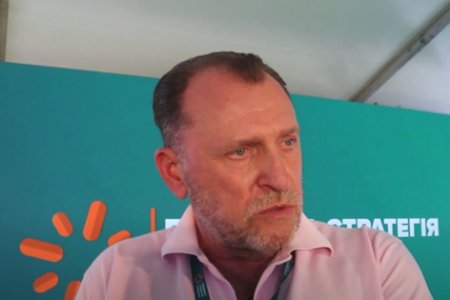
A Russian occupation ‘court’ has sentenced 20-year-old Appaz Kurtamet to seven years’ imprisonment in the harshest of Russian penal institutions, despite manifestly absurd charges and the gravely irregular circumstances by which the young Crimean Tatar came to be in Russian captivity.
In March, the prosecutor demanded a 10-year sentence, claiming that Kurtamet had “financed an illegal armed formation” under Article 208 § 1 of Russia’s criminal code. It was claimed that he had done this by sending 500 UAH (around 12 euros), seemingly as a loan, to a friend who, it later transpired, is defending Ukraine as part of the ‘Crimea’ volunteer battalion. The charge was absurd, and Kurtamet was accused of sending the money while in Kherson oblast, long before Moscow staged the pseudo ‘referendum’ with which it tried to justify annexing part of the oblast. Yet, on 20 April 2023, ‘judge’ Oksana Karchevska from the occupation ‘Kievsky district court’ in Simferopol passed a 7-year sentence, with the first year to be in a prison, the very worst of Russia’s penal institutions, and the remaining part of the sentence in a harsh-regime prison colony. Kurtamet is one of an ever-mounting number of Crimean Tatar and other Ukrainian political prisoners facing or already enduring incarceration in the prison colonies from which convicted murderers and other violent criminals have been released over the last year to fight and kill in Ukraine. Those real criminals who survived have received pardons signed by Russian president Vladimir Putin and, often, Russian state medals.
It is uncertain when the sentence will be deemed as having begun since Kurtamet has been held prisoner since Russia’s FSB abducted the young man on 23 July 2022, but it was only on 10 October that the same occupation ‘Kievsky district court’ (‘judge’ Viktor Krapko) formally remanded him in custody. The only reason why the FSB holds Ukrainian citizens incommunicado, without access to independent lawyers and their families, is to exert unlawful influence upon them. In most, if not all known cases, this has been through the use of electric shocks, beatings, mock executions and / or other forms of torture. There is every reason to assume that the same methods were applied for over two months against Appaz Kurtamet, a Crimean Tatar language teacher from Novooleksiivka (Kherson oblast).
Kurtamet was abducted by the FSB at the Chonhar administrative border on 23 July 2020 when he tried to cross from mainland Ukraine into occupied Crimea to visit relatives. He rang his parents when he arrived at the checkpoint and then vanished. The following day, his mother received a call from a total stranger who claimed to be ringing at her son’s request and who told her that Appaz had been detained while going through the checkpoint.
This was an enforced disappearance, not an arrest, as the FSB continued to deny that Kurtamet was in their custody. It was only through unofficial channels that Appaz’ mother learned that he was being held at the Simferopol SIZO [remand prison], yet here too the SIZO administration claimed that he was not there.
This changed in October, when Kurtamet ‘emerged’, in custody, and the charges crystallized. Russia’s FSB claim that the 12 euros that Kurtamet sent to a friend constituted “the financing of an armed formation’ under Article 208 § 1 of Russia’s criminal code. The document laying charges, signed by FSB ‘investigator’ A.V. Cheblukov, asserts that “Kurtament, knowing of the illegal activities of the Islamic [sic] battalion ‘Crimea’ passed 500 hryvnia to a member of the battalion.” Nor, this document added, had he informed executive bodies or in some other way prevent the activities of the Crimea Battalion.
There was no reason why he should have informed any Russian occupation official of anything. He had sent the money in mainland Ukraine, where he was living, and, even had the money been knowingly intended for the Crimea Battalion, there is nothing illegal about the battalion under Ukrainian law. There was nothing to inform the Russian authorities about, nor any compulsion upon him to do so. There is also nothing to suggest that any criminal charges had been laid against the young Crimean Tatar before he arrived at the checkpoint and was abducted by the Russian FSB.
The defence had demanded Kurtamet’s full acquittal and will certainly be appealing against this lawless sentence.


